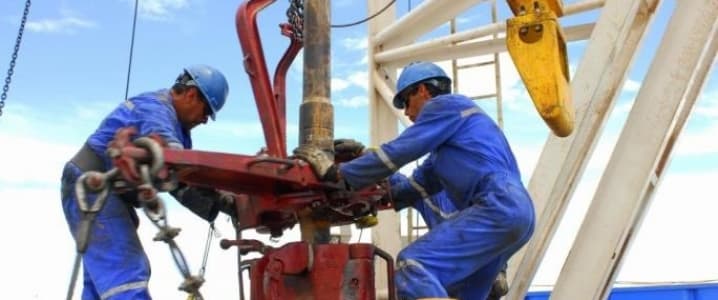Colombia’s energy industry needs $70 billion in fresh investments over the next ten years just to survive, according to the head of the country’s oil association, Jose Lloreda. This is twice as much annually as the $3.8 billion expected to be invested in the country’s oil patch this year—in exploration and production—and the discrepancy has sounded a loud alarm in the local oil industry.
When it comes to oil, Colombia has two big problems to deal with: lack of investment and limited reserves. There are solutions to these problems, but how viable they are is uncertain.
Investments in Colombian oil exploration started to drop as international crude prices crashed. Even though benchmark prices have recovered from the $27 reached in January, the bulk of analyst estimates don’t see oil rebounding to above $60 over the next three years, at least. Related: Why $50 Oil Makes Sense
This is bad news for Colombia because oil production in the Andean country is a high-cost enterprise: the rough terrain, lack of transport infrastructure and guerilla activity combine to seriously decrease Colombia’s attractiveness for oil investment.
Regarding the lack of sustainable reserves, Colombia currently has 2 billion barrels of proven oil. Lloreda says it needs another 1.3 billion barrels to avoid losing its energy independence. This could be done by either boosting conventional oil exploration, turning to shale, or a combination of both. According to the EIA, Colombia has 600 million barrels of recoverable tight oil reserves and 54.7 trillion cubic feet of recoverable shale gas reserves.
This much-needed boost could come through a tax reform for the industry plus other stimulus measures regarding capital adequacy and exploration deadlines that might encourage energy companies to ramp up their operations in Colombia. This could happen if the government gets on board with the Colombian Oil Association. Related: Iran Eyes $185 Billion In Foreign Investment With New Contracts
However, President Jose Manuel Santos seems to interpret the oil price slump as a blessing in disguise and that may well be the case. Although not as reliant on oil revenues as neighbor Venezuela, Colombia still relies on this income heavily as it represents around 20 percent of its total export revenues and a quarter of GDP. Santos argues, however, that the country can make do perfectly well without this revenue.
Weaning itself off oil will be a tough endeavor, but according to the FT, Santos has specific plans that include combining cost-cutting and tax increases, and argues that once these are implemented, Colombia will thrive even more than it did before the oil price rout. The reforms that the government envisages in its “intelligent austerity” initiative include stimulating manufacturing and introducing more personal and corporate taxes, so the tax burden is not all focused on only the biggest businesses in the country.
Still, energy independence is, or should be, a strategic priority, even in a diversified economy. To address this, the government must consider motivating energy companies to stay in the country and develop its conventional and—possibly--shale reserves.
By Irina Slav for Oilprice.com
ADVERTISEMENT
More Top Reads From Oilprice.com:
- Dollar Weakness Fails To Stimulate Oil Prices
- Against All Odds, Russia Plans to Boost Oil Production by 185,000 Bpd
- Scotland Bans Fracking, Forever


















